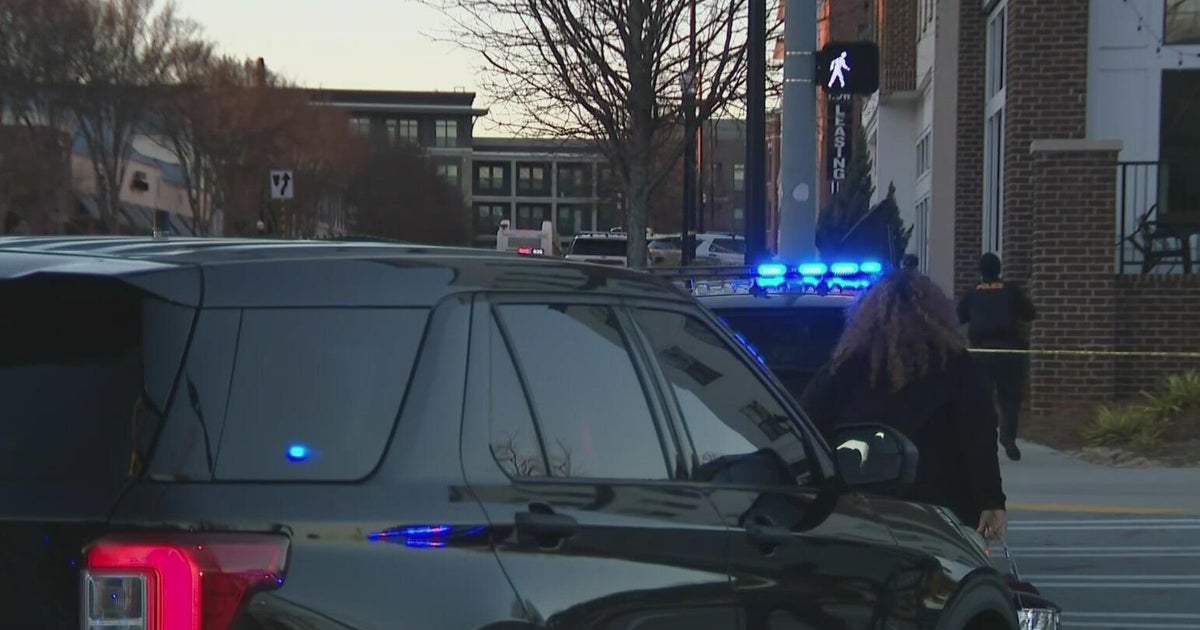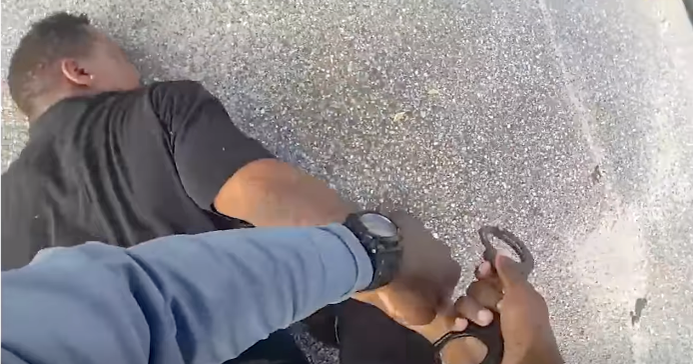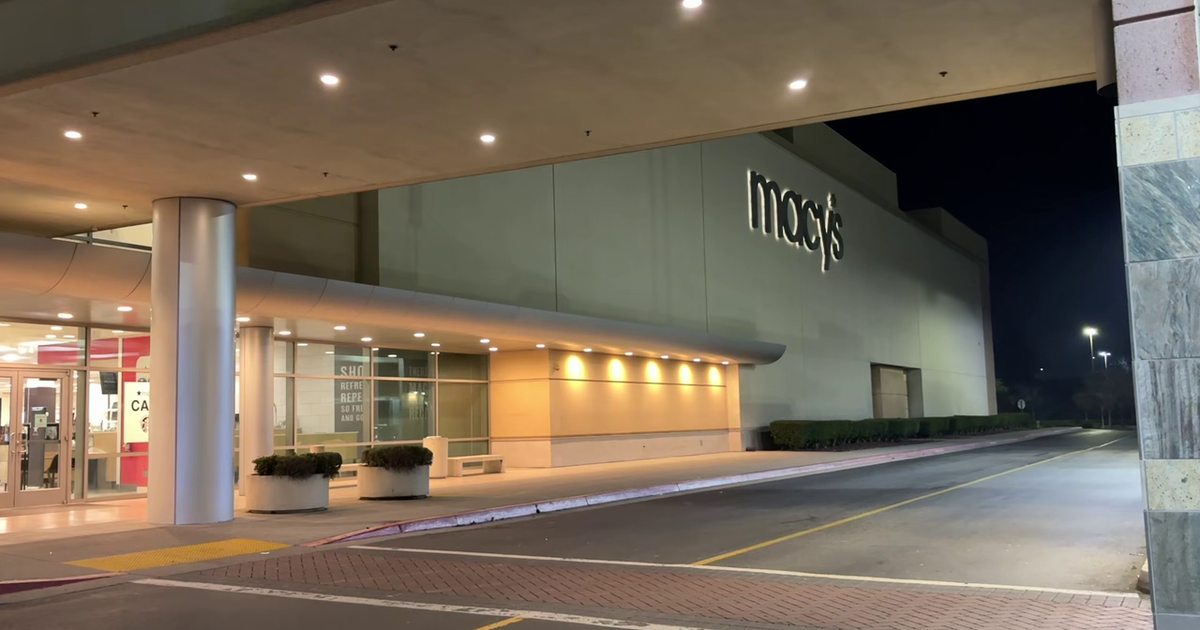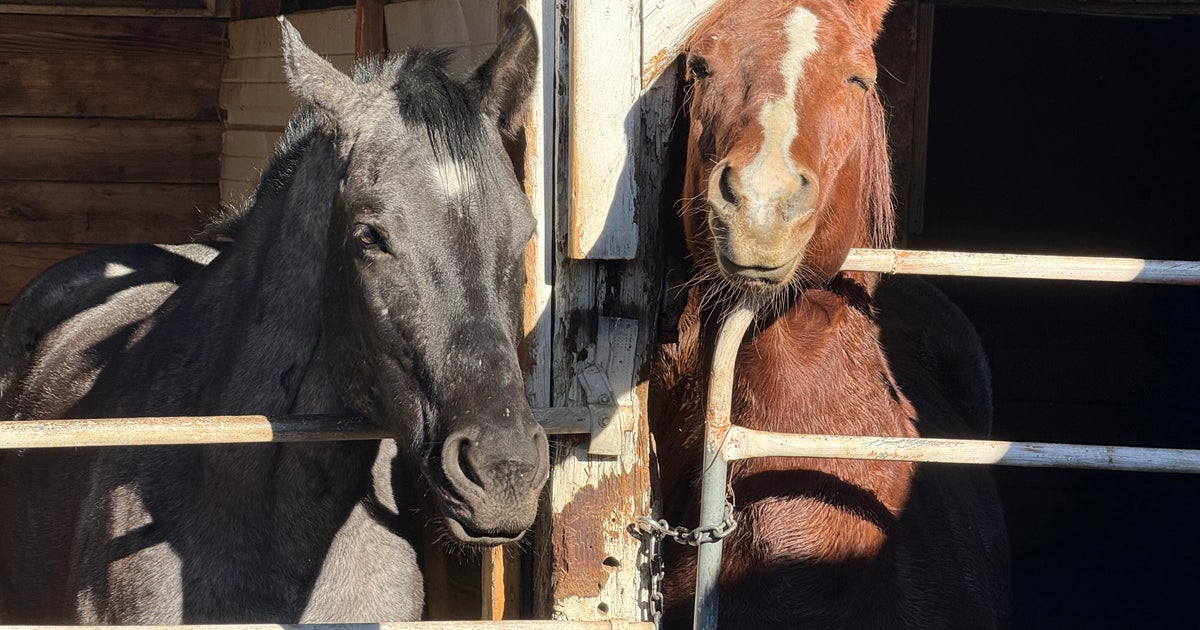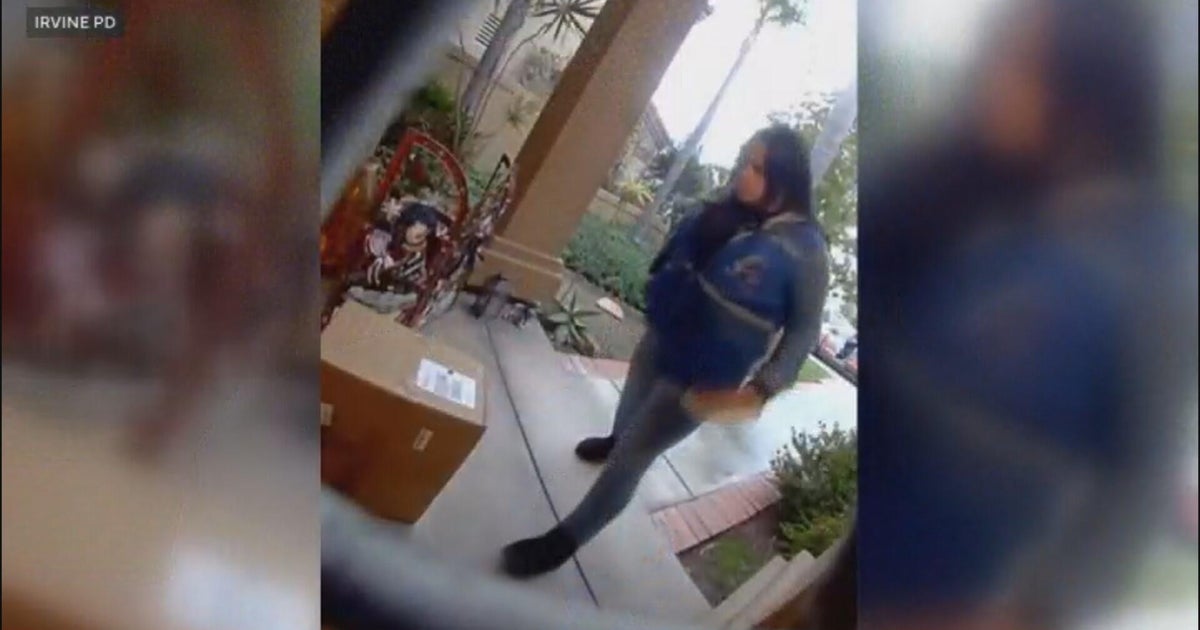Holiday Shoplifting: Fighting Organized Retail Crime In Mass.
PEABODY (CBS) - Your local mall at Christmastime. There are the decorations, Santa Claus, holiday music, and then a not so pleasant side, according to Saugus Police Officer Thomas Jones. "Every Christmas season, along with everybody going out to buy presents, we see the Christmas shoplifting, I call it," he says.
Officer Jones works at the Square One Mall Police Substation, which is a partnership between Saugus Police, Simon Malls and Allied Barton Security. "The biggest problem is shoplifting and whether it's one person walking into a store and seeing something and realizing they don't want to pay for it so they steal it, or whether it's organized retail crime, nationwide, it's a big problem," says Officer Jones.
It turns out a relatively small group of professionals is to blame. Ryan Kearney is General Counsel for the Retailers Association of Massachusetts. He says Organized Retail Crime, ORC, accounts for just three percent of all shoplifting but is responsible for 30 billion dollars out of the 38 billion dollars in annual shrinkage.
Peabody Police Detective Ralph Scopa works at the North Shore Mall in Peabody, which has had a Community Outreach Center at the Mall since 1996. He says these rings are quite sophisticated. "You'll have one in a car on the phone. You'll have one outside the store on the phone. You'll have three go in. One will fill it, hand it off and do the running. When they do get caught, for whatever reason, and they are brought down to the station and there is a high bail on them, you know who the hierarchy is by who they bail out. They would come in any time day or night with a brown paper bag, 20 grand cash, here you go," explains Scopa.
Holiday Shoplifting Part 1
Burlington Police Detective Lieutenant Stephen O'Meara has been on the job for 30 years and says the sharing of information between police departments helps. "We find that they usually work the whole Route 128 belt from Peabody to Dedham and will hit several malls along the way," he says.
Saugus Police Officer Thomas Jones says a police presence really helps nab the shoplifters. "That's not just from being in the mall. It's from being a police officer for so long. You just get that sense and it's hard to describe what it is, but you know. Lots of times, it could be somebody walking in with a bag from a store that you know isn't in the mall. Lots of times it's even how they look at me. Apparently some people don't like police," Jones says with a laugh.
He also admits to a level of frustration. "There are lots of repeat offenders. It amazes you sometimes when you look at people's records and think how many times do you have to do this before that person goes to jail. If the public realized how much people are getting away with, they'd be pretty disheartened," says Jones.
Exactly Who Shoplifts?
Officer Jones pulls out a plastic shopping bag sitting behind his desk. "This is a bag from one of the suspected shoplifters who we stopped at one of the larger stores here," explains Jones. He continues, "This is just today. The girl had stolen a pretty expensive handbag, and inside is underwear, Victoria's Secret, plus items from a third store and a fourth store." Jones says the suspect will be summonsed into court for larceny. "This was a young girl. She wasn't part of an organized retail crime, but she was on her own shopping spree," he says.
Exactly who shoplifts? Burlington Police Lt. Stephen O'Meara says he's seen everything. "We have made arrests of women with babies, so nothing really surprises me when it comes to shoplifters," he says.
Holiday Shoplifting Part 2
Peabody Police Detective Ralph Scopa outlines two major groups responsible for most of the damage. First, he says, there are the drug users who do what he calls 'smash and grabs.' "It's usually tables, displays and they are getting basically 25 percent, the so called mules who carry and do the theft." He continues, saying there are also the organized crime operators who usually enter malls in groups of four or five.
"They are very well organized. They do their surveillance when they come into the property. They will do their surveillance when they come into the store. They might even have someone working inside the store that they want to steal from," he explains. Scopa works extensively with retailers on what to look for in these cases and will often show them confiscated items. He says tin foil inside bags are used to stop sensor alarms. He says some bags are made completely out of duct tape, and then hidden in other shopping bags. He has also found ink tag removers that are used in dressing rooms to remove sensor alarms from tagged merchandise.
If an individual is caught, there also is no guarantee that he or she will be punished. Saugus Police Officer Jones says store policies on shoplifting vary. "Some of the corporate policies, their policy is more focused on their liability and it's not conducive to enforcing the laws and catching shoplifters and getting convictions for shoplifters, and unfortunately, the criminals realize this, know store policies and prey upon them," he says.
Police Step Up Patrols
Shoplifters also have a sense of what works and what doesn't when it comes to effective deterrents. A sensor alarm can sound at the mall door of a retail store, and while it may cause shoppers and store employees to look up, oftentimes no one reacts. Saugus Police Officer Thomas Jones explains, "Unfortunately, they are almost like car alarms. People just ignore them and unless someone is chasing somebody out, they assume it was a tag left on and nobody's worrying about it."
Officer Jones says video surveillance is effective, but for the smaller retailer especially, they can be difficult to install. "It's very expensive, these security systems. It can cost hundreds of thousands of dollars to set these cameras up all over the stores. It's a big expense to get the system in place," he says.
Holiday Shoplifting Part 3
Burlington Police have had success with informal stepped up surveillance at the Burlington Mall. "People were stealing from the Mall, and then telling us in interviews that they were coming to Burlington because they weren't being arrested, because the stores weren't prosecuting, so we kind of felt that we weren't doing our job effectively and informally started making more arrests and taking more cases," he says. As a result, Burlington's shoplifting incidents dropped 28 percent last year when compared to the previous year.
Peabody police have had a Community Outreach Center at the North Shore Mall since 1996. During that time, car thefts alone dropped from an annual figure of 100, to zero. John Nelson is Peabody's Crime Prevention Officer. "We recovered, at one hit, $50,000 worth of merchandise in the trunk of a car. We returned it to all of the stores. They are thrilled, number one, to get their merchandise back and number two, they are now educating their employees to be looking out a little harder for these individuals coming in."
Peabody Detective Ralph Scopa says they also want to see teeth put into shoplifting laws. "Basically all you have is a larceny, whether it's over $250 or it's 20,000, $50, it's still a larceny," he says.
Natick State Representative David Linskey, a criminal prosecutor for 14 years before he was elected to the legislature, has filed a bill that would update Massachusetts larceny laws, which he says dates back to the early 1800's. "I want to be able to change the definitions of the crimes, so that we can prosecute these individuals who use the sophisticated methods. I want to be able to prosecute the people who use the web sites to resell the goods and I want to be able to prosecute the middle men who go out and get these goods sold," Linskey says.
Gene Smith, President of the Loss Prevention Foundation can't emphasize enough the role we all play, which ultimately means higher prices at stores. "If you're buying something from one of the online websites, and it's a deal that's too good to be true, then you know what? It's probably stolen merchandise," says Smith.
